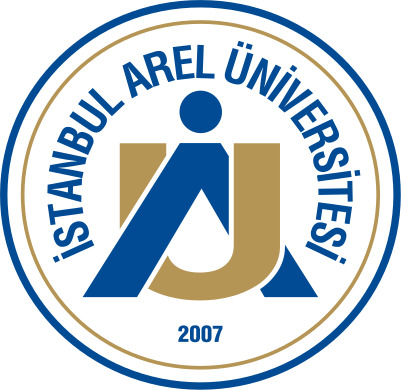Mechanical Engineering
Overview
<!-- wp:paragraph --> <p><strong>Program Description</strong><br><strong>Mechanical Engineering Program at Istanbul Arel University: Innovating the Future of Technology</strong></p> <!-- /wp:paragraph --> <!-- wp:paragraph --> <p>The Mechanical Engineering program at Istanbul Arel University provides students with a comprehensive education in the principles of mechanical design, manufacturing, thermodynamics, materials science, and systems analysis. This program combines theoretical knowledge with practical experience to prepare students for careers in a wide range of industries, including automotive, aerospace, robotics, energy, and manufacturing. Through a blend of coursework, laboratory work, and hands-on projects, students will gain the skills needed to solve complex engineering problems, design innovative systems, and contribute to the advancement of technology. The program emphasizes sustainability, innovation, and real-world applications, ensuring graduates are prepared to meet the challenges of the future.</p> <!-- /wp:paragraph --> <!-- wp:paragraph --> <p><strong>Program Mission and Vision</strong><br>The mission of the Mechanical Engineering program at Istanbul Arel University is to provide students with the knowledge, skills, and creativity required to become leaders in the field of mechanical engineering. The program fosters a commitment to innovation, excellence, and sustainability in engineering practices. Its vision is to produce highly skilled mechanical engineers who are capable of addressing global challenges, advancing technological innovation, and contributing to the development of sustainable engineering solutions.</p> <!-- /wp:paragraph --> <!-- wp:paragraph --> <p><strong>Curriculum Structure</strong><br>The curriculum for the Mechanical Engineering program is designed to provide a balanced foundation in engineering sciences, mathematics, and technical subjects. Students will develop a deep understanding of core mechanical engineering principles and gain hands-on experience in designing, testing, and optimizing mechanical systems. Key areas of the curriculum include:</p> <!-- /wp:paragraph --> <!-- wp:paragraph --> <p><strong>Core Mechanical Engineering Courses</strong><br><strong>Introduction to Mechanical Engineering:</strong> This introductory course provides students with an overview of the mechanical engineering profession, including basic concepts in mechanics, materials, and thermodynamics. Students also learn about the history and evolution of mechanical engineering as well as the key areas of specialization within the field.</p> <!-- /wp:paragraph --> <!-- wp:paragraph --> <p><strong>Engineering Mechanics:</strong> Students study the principles of statics and dynamics, including force analysis, equilibrium, and motion of bodies. The course focuses on understanding how forces affect structures and mechanical systems and applies these concepts to engineering design.</p> <!-- /wp:paragraph --> <!-- wp:paragraph --> <p><strong>Materials Science and Engineering:</strong> This course covers the properties and behavior of engineering materials, including metals, polymers, ceramics, and composites. Students learn how to select materials based on their mechanical properties, performance, and cost in the context of mechanical design.</p> <!-- /wp:paragraph --> <!-- wp:paragraph --> <p><strong>Thermodynamics:</strong> In this course, students explore the principles of energy conversion, heat transfer, and the laws of thermodynamics. Topics include the analysis of thermodynamic systems, the study of energy efficiency, and the design of heat engines and refrigeration systems.</p> <!-- /wp:paragraph --> <!-- wp:paragraph --> <p><strong>Fluid Mechanics:</strong> Students learn the fundamentals of fluid dynamics, including the behavior of fluids in motion and at rest. The course covers fluid properties, flow analysis, and the application of fluid mechanics to systems such as pumps, turbines, and heat exchangers.</p> <!-- /wp:paragraph --> <!-- wp:paragraph --> <p><strong>Manufacturing Processes:</strong> This course introduces students to the various methods and technologies used in the manufacturing of mechanical components. Topics include casting, machining, welding, additive manufacturing, and quality control techniques, with an emphasis on efficient and sustainable manufacturing practices.</p> <!-- /wp:paragraph --> <!-- wp:paragraph --> <p><strong>Mechanical Design and CAD:</strong> Students gain hands-on experience in the design and analysis of mechanical components using computer-aided design (CAD) software. The course covers the design process, material selection, and the application of engineering standards to produce functional and manufacturable designs.</p> <!-- /wp:paragraph --> <!-- wp:paragraph --> <p><strong>Dynamics of Machinery:</strong> This course focuses on the study of the motion and forces within mechanical systems, including the analysis of linkages, gears, and cam systems. Students learn to analyze and design mechanisms used in machines and mechanical devices.</p> <!-- /wp:paragraph --> <!-- wp:paragraph --> <p><strong>Control Systems and Automation:</strong> Students explore the principles of control theory, feedback systems, and automation technologies used in modern mechanical systems. The course covers sensors, actuators, controllers, and the use of control systems in manufacturing, robotics, and industrial applications.</p> <!-- /wp:paragraph --> <!-- wp:paragraph --> <p><strong>Heat Transfer:</strong> This course focuses on the mechanisms of heat transfer, including conduction, convection, and radiation. Students learn how to design systems for efficient heat transfer, such as heat exchangers and cooling systems, and apply these principles in areas like HVAC, renewable energy, and thermal management.</p> <!-- /wp:paragraph --> <!-- wp:paragraph --> <p><strong>Mechatronics and Robotics:</strong> Students study the integration of mechanical, electrical, and computer engineering to design and control intelligent systems and robots. The course covers sensors, actuators, control algorithms, and the application of mechatronics in industries such as automation and robotics.</p> <!-- /wp:paragraph --> <!-- wp:paragraph --> <p><strong>Engineering Economics and Project Management:</strong> This course introduces students to the financial and managerial aspects of mechanical engineering projects. Topics include cost estimation, budgeting, resource allocation, and project planning. Students learn how to manage engineering projects effectively and efficiently.</p> <!-- /wp:paragraph --> <!-- wp:paragraph --> <p><strong>Sustainable Engineering Practices:</strong> This course emphasizes the importance of sustainability in mechanical engineering. Students explore the principles of eco-design, energy efficiency, and the impact of engineering decisions on the environment. The course covers renewable energy systems, sustainable manufacturing, and lifecycle analysis.</p> <!-- /wp:paragraph --> <!-- wp:paragraph --> <p><strong>Capstone Project and Internship:</strong> The program culminates in a capstone project and internship, where students apply their knowledge to real-world engineering challenges. Students work on projects related to mechanical design, systems analysis, or manufacturing processes, often in collaboration with industry partners. The internship allows students to gain hands-on experience in leading engineering companies and apply their skills in a professional environment.</p> <!-- /wp:paragraph --> <!-- wp:paragraph --> <p><strong>State-of-the-Art Facilities and Labs</strong><br>Istanbul Arel University provides students with access to modern laboratories and workshops equipped with the latest tools and technologies in mechanical engineering. The facilities include CAD design labs, thermodynamics and fluid mechanics laboratories, manufacturing and machining shops, and testing equipment for materials and systems. These resources enable students to conduct experiments, design systems, and refine their skills in a professional setting.</p> <!-- /wp:paragraph --> <!-- wp:paragraph --> <p><strong>Emphasis on Practical Experience and Industry Collaboration</strong><br>The Mechanical Engineering program places a strong emphasis on practical learning. Students are encouraged to engage in hands-on projects, participate in internships with industry leaders, and collaborate with professionals on real-world engineering challenges. The university’s industry partnerships provide students with exposure to the latest technologies and trends in mechanical engineering.</p> <!-- /wp:paragraph --> <!-- wp:paragraph --> <p><strong>Career Opportunities</strong><br>Graduates of the Mechanical Engineering program are equipped to pursue a wide range of career paths in industries such as automotive, aerospace, robotics, energy, manufacturing, and consulting. Career opportunities include roles such as mechanical engineer, design engineer, systems engineer, quality control engineer, project manager, research and development engineer, and manufacturing engineer. Graduates can work in private companies, government agencies, research institutions, and international organizations.</p> <!-- /wp:paragraph --> <!-- wp:paragraph --> <p><strong>Shaping the Future of Engineering</strong><br>The Mechanical Engineering program at Istanbul Arel University prepares students to become innovators and leaders in the field of mechanical engineering. With a focus on advanced technical skills, sustainability, and industry collaboration, the program ensures that graduates are well-equipped to address global engineering challenges and contribute to the advancement of technology, improving the quality of life and the world around them.</p> <!-- /wp:paragraph -->
Program Description
The Mechanical Engineering program at İstanbul Arel University offers a comprehensive curriculum designed to prepare students for successful careers in this dynamic field. The program combines theoretical knowledge with practical skills, ensuring graduates are ready for the challenges of the industry.
The program is taught by experienced faculty members who are leaders in their respective fields, providing students with insights into current industry practices and future trends.
Curriculum Highlights
- Advanced Research Methods: Learn cutting-edge research techniques and methodologies.
- Industry Analysis: Explore current industry trends and develop analytical skills.
- Leadership and Management: Develop essential leadership skills for managing teams and projects.
- Innovation and Entrepreneurship: Cultivate creative thinking and entrepreneurial mindset.
- Digital Transformation: Understand how technology is reshaping industries and businesses.
- Sustainable Development: Explore environmentally sustainable practices and their implementation.
- Global Markets: Study international market dynamics and global business operations.
- Technology Integration: Learn to leverage technology for improved business outcomes.
Requirements:
- Bachelor's degree (for Master's programs) or equivalent qualifications.
- Proven English language proficiency (IELTS 6.5+ or equivalent).
- Complete transcripts from previous education.
- A compelling letter of motivation explaining your interest in the program.
- Two letters of recommendation from academic or professional references.
- Valid passport with appropriate visa status or eligibility.
Benefits:
- World-class faculty with extensive industry experience.
- Modern campus facilities and cutting-edge learning environments.
- Strong industry partnerships providing networking opportunities.
- Internship opportunities with leading companies in the field.
- Comprehensive career services including job placement assistance.
- Access to a global alumni network for lifelong professional connections.
Begin your educational journey today.
Apply now and take the first step towards your future.






